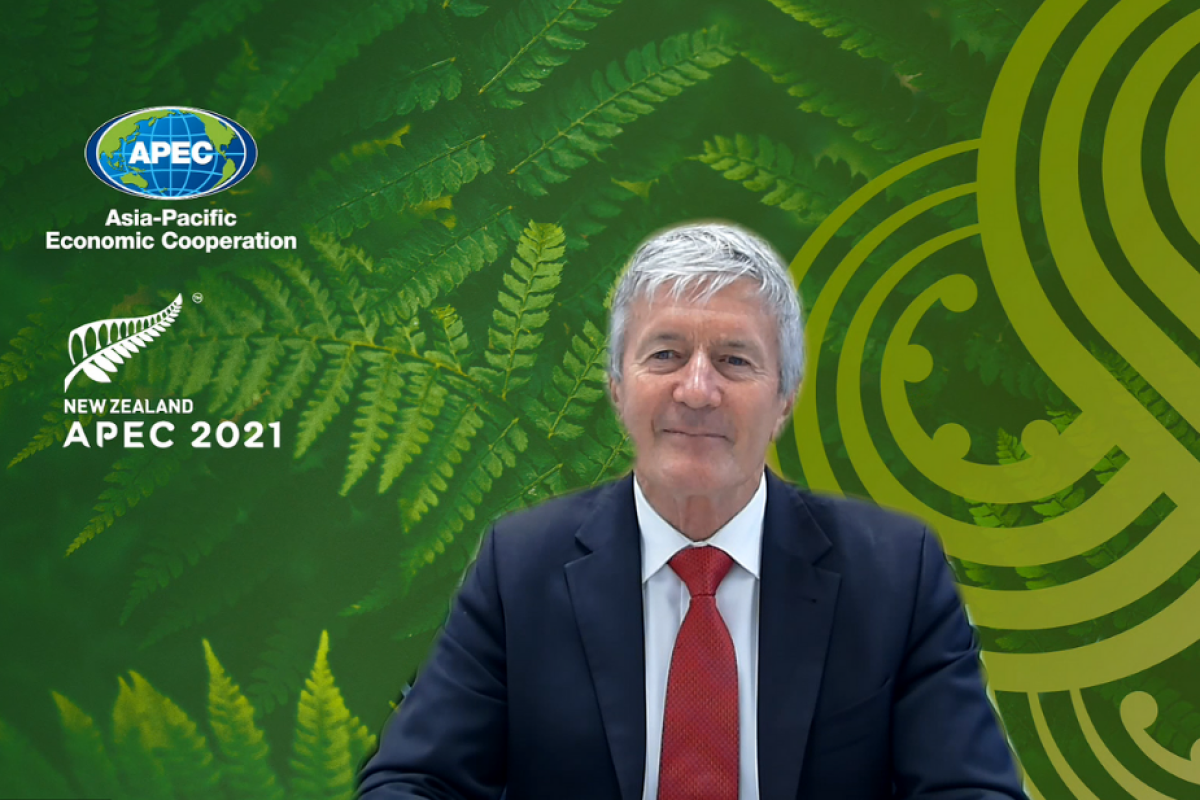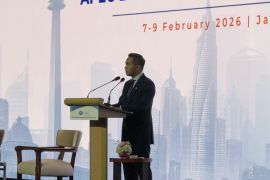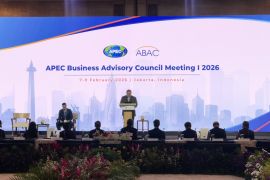While food security was already a challenge, COVID-19 showed us that there are vulnerabilities in our food systems and in our economies, and that our food systems need improvement, especially to deliver on the APEC 2040 vision of an open, dynamic, peJakarta (ANTARA) - Agriculture and food ministers from APEC's 21 member economies have reaffirmed their commitment to an open, transparent, productive, sustainable, and resilient APEC food system by launching a new 10-year food security roadmap.
A World Bank policy brief has shown that nearly 2.37 billion people lacked access to adequate food in 2020, an increase of 320 million in just one year, according to a press release issued by the 6th APEC Ministerial Meeting on Food Security and received here on Thursday.
A report by the Global Network Against Food Crises (GNAFC) has found that the number of people facing acute food insecurity who need urgent life and livelihood-saving assistance hit a five-year high in 2020.
It was against this backdrop that APEC ministers convened their annual APEC Ministerial Meeting on Food Security on Thursday. The meeting, which was chaired by New Zealand's Minister of Agriculture, Damien O’Connor, adopted the APEC Food Security Roadmap Towards 2030.
The roadmap details goals and key action areas where APEC is well-placed to help ensure people always have access to sufficient, safe, affordable, and nutritious food to meet their dietary needs and food preferences for an active and healthy life.
Related news: APEC clocks robust growth in first quarter
"While food security was already a challenge, COVID-19 showed us that there are vulnerabilities in our food systems and in our economies, and that our food systems need improvement, especially to deliver on the APEC 2040 vision of an open, dynamic, peaceful, and resilient region," Minister O’Connor highlighted in his opening remarks.
The roadmap, which is aligned with New Zealand’s APEC 2021 priorities as well as the APEC Putrajaya Vision 2040, incorporates four key areas of focus, he added.
First, digitalization and innovation in terms of using digital levers to drive food sustainability; second, productivity in term of prioritizing systems that are fit for purpose; third, inclusivity in term of ensuring that underrepresented groups are set up to thrive; fourth, sustainability in term of tackling climate change and environmental challenges, he informed.
Related news: APEC's technical meeting cluster underway to drive recovery progress
"Besides our effort to address the challenges of food security, the roadmap also emphasizes efforts in increasing productivity and efficiency, minimizing food waste, mitigating and adapting to climate change as well as reducing costs and facilitating food trade," said Philip Houlding, chair of the APEC Policy Partnership on Food Security Group.
The group spearheaded the development of the roadmap and drives public-private sector engagement on all aspects of food security in the region.
At the meeting, APEC ministers acknowledged the benefits of digitalization and discussed measures to promote innovation and improve the use of digital technology to ensure food security as the region recovers from COVID-19.
Related news: Ambon commences vaccinating women in second trimester of pregnancy
Related news: President reviews student vaccinations in East Java
"The pandemic accelerated digital transformation and highlighted the abilities of an innovative digitally enabled economy to better recover and thrive," said Minister O’Connor.
"But effective recovery also requires all elements of government to work together to deliver this transformation and enhance food security in the APEC region," he added.
Ministers also highlighted the central role of the private sector throughout the food value chain with respect to production and processing, distribution, trade and investment, he said.
Furthermore, APEC ministers encouraged deeper collaboration between policymakers and the private sector to ensure an innovative, refreshed food system to meet the food security challenges of the future, he added.
"Without food security for all our people, we cannot achieve the other goals we have for our economies," O’Connor remarked. (INE)
EDITED BY INE
Reporter: Yuni Arisandy Sinaga
Editor: Fardah Assegaf
Copyright © ANTARA 2021












